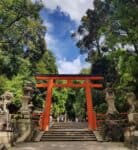Probably the most successful factor in Japanese society is their ability to create a strong work ethic in almost every single one of their citizens. This is something that has been noticed by many people and can be confirmed just by looking at the way Japan functions. What is their secret? How do they teach their citizens this almost perfect work ethic and where do they start?
To shape a hardworking country the way Japan has is no easy task. These values have to be taught from a very young age and modeled as an example by most citizens. This is exactly what Japan has done throughout history and is still doing today.


But what is it that makes the Japanese so hardworking and their country so efficient? How do they get it right to instill these values in almost every citizen? We are going to look at what the main workplace principles are and just how exactly they are taught.
What Are The Main Principles In the Japanese Working World?
Japan’s work environment has a unique set of characteristics that add to the reason why it is the way it is. A few examples are:
Long hours and hard work
Japan is not only notorious for having long working hours, but also for the hard work that employees do in these long hours every day.
Many employees work 80 to 100 hours every month and a lot of the time the overtime hours are unpaid. There is a term in Japan called karoshi. Karoshi literally translates into “death by overwork”. Why is this even a coined term? Because it actually happens quite frequently in Japan. By law, it is a recognized cause of death.

Japanese employees do not often take a paid vacation or sick days. This due to a concept that is taught to them from a young age. The concept of ganbaru (which literally translates to “stand firm”) and gaman (passive endurance) is very important in the Japanese workplace. The idea of Ganbaru is basically doing your best, but when it comes to business and working, it actually means doing more than your best or pushing yourself to the limit.
Gaman literally translates into ‘enduring the seemingly unbearable with patience and dignity.’ This means that no matter what you are going through, you should keep a smile on your face and you should not show your frustrations. In the context of working, it means that no matter how hard you have to work or how tired you feel, you should push through and do it with a smile.
Gaman can also be linked to Japanese philosophies of honne and tatemae. Honne refers to your inner being, while tatemae refers to what you show to the world. Honne is seldom shared with other people. Tatemae is an honorable and respectable version of yourself that you allow others to see.
Gaman means to suppress your inner feelings when you are going through something difficult and to persevere instead of expressing that you want to give up or that you wish you did not have to carry on.
These concepts are taught to children from the moment they begin to learn at school and is something of a second nature to them as they grow up and enter the workplace. The Japanese are taught that long hours and hard work should be accepted and welcomed.
However, new labor laws in Japan are being put in place to relax these kinds of rules. The Japanese government has recognized that overworking is a problem and has been trying to change regulations and laws that allow for intense overworking.
Formal Workplaces
In Japan, having a formal workplace environment is very important. The way an office looks, the way the employees are dressed, and the way in which employers and employees communicate with each other, is a big thing.
Usually, when speaking to a boss or someone higher up, most people would refer to them with a title and their last name. For example, Mr. Jones or Mrs. Smith. Perhaps even Sir or Ma’am.
But, in Japan, this is not only the way to address the boss or the manager. Employees address each other in this way too. It is considered rude to address a fellow employee by their first name.
In the corporate world, businessmen in Japan are often called “salarymen” and both men and women professionals have to adhere to a certain dress code. Going to work in casual attire is definitely frowned upon. Women wear navy or black skirts, white shirts, and kitten heels. Men wear suits and ties in neutral colors (no Spongebob or Mickey Mouse ties) no matter the weather. There are not many bright colors or patterns.
This kind of general work uniform gives off a feeling of discipline, neatness, and seriousness, all of which are important when tending to business.
To know more about Japanese culture, read also :
Basic Principles of Ikebana
Choosing Gravel For Your Japanese Garden
Best Yakitori in NYC
Making Your Own Kokedama
Elements of a Japanese Garden
Real Ramen vs Instant Ramen
Open Plan Offices
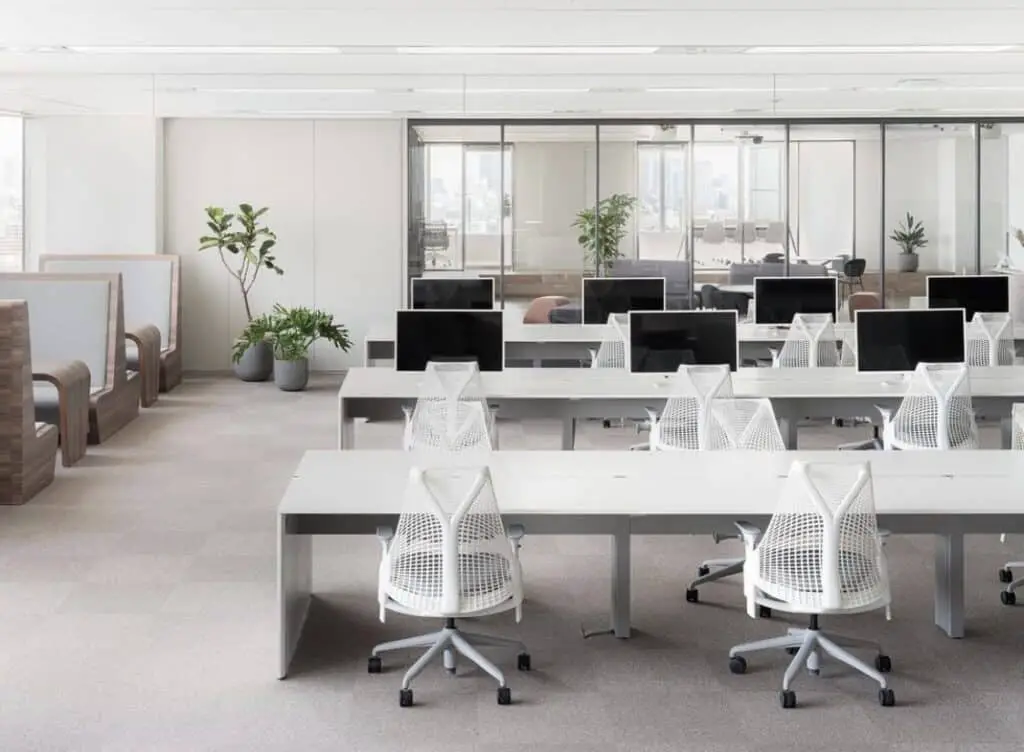
Another big factor in the workplace is how it is designed. To ensure maximum efficiency and communication between employees, offices in Japan generally do not have cubicles. Instead, they are designed in an open-plan way. In Japanese, this type of design is referred to as obeya-seido and is specifically implemented so that everyone can work well together.
A downside to this is, of course, no privacy and noisiness. However, when it comes to being noisy, most employees do their best to keep other workers in mind and be respectful of them.
Ho-Ren-Su
Ho-ren-so is a shortened version of 3 words. Houkoku, renraku, and soudan. When translated, Houkokumeans “report”, renraku means “contact” and soudan means “consult.” Most companies use this concept in the workplace.
What this means, is that workers should run everything by their superiors. Whether it is a seemingly unimportant decision, a tiny problem, or a quick question, employees have to consult with their managers or bosses about it. This means that employees do not really have the right to make decisions on their own.

The relationship between bosses and employees is fundamental in Japan. There is a concept called nenkou-jorestu. This concept basically means that any superiors (whether it is because they are a boss or simply because they are older) should be given the utmost respect.
This is a very old system that stems from Confucianism. The belief is that people of higher status or who have a higher ranking in society should be treated with more respect and admiration than those in lower rankings.
This, of course, does not mean that you can treat people who have a lower societal ranking in a bad way. What it means, is that you should be more careful when dealing with superiors. Even though this is a natural inclination for people all around the world, there is a lot more emphasis placed on it in Japan.
This practice can be seen when it comes to salaries and wages. Lower-ranking or beginner positions mean low salaries. The higher you are able to work yourself up, the higher your pay will increase. Even though this has been seen as a good incentive system to create hard workers, it has caused employees to never want to switch companies, because if they start at a new company, they would have to start working their way up again.
Because of this, many Japanese companies have however started using more merit-based systems recently.
Nomikai
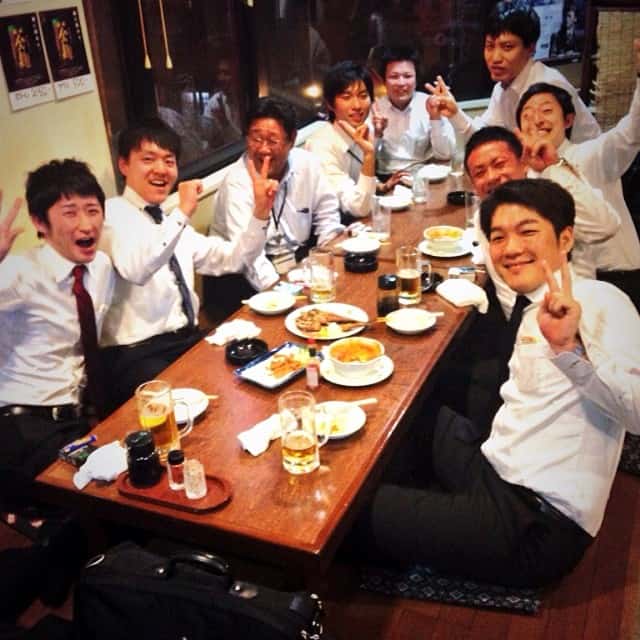
Having drinks after work is a custom tradition in Japan. Coworkers like to go for drinks in a group after a long day of work. It is definitely not a written rule in everyone’s employment contracts, but it is seen as expected from employees for social reasons and to fit in.
The Japanese have a word for this kind of after-work socializing – nomikai. In English, nomikai means gathering to drink. It is something that has been practiced by Japanese businessmen for many years.
The purpose of nomikai is for employees to get to know each other and spend more personal time together. It is believed that this will strengthen employee’s relationships with each other and their bosses and in turn, will help them to work better together every day. This definitely shows a more relaxed side of Japanese work culture, however, there are still rules which are similar to those in the workplace.
A person who is seen as having a lower rank should always make sure that his boss or other superiors have enough to drink, instead of focusing on whether he has enough to drink or not. This sounds a little odd, but the superior will usually offer to fill the employee’s cup in return.
Even though the rules of the ranking system still apply, employees and employers are obviously not as stiff at their after-work parties and they do get a little deeper and more personal with each other. As long as this does not extend into the workplace, it is still a bunch of friends just having drinks and laughing together.
Nomikai has been toned down a bit in recent years, because of the culture that it creates. No matter how disciplined and harmonious – when people get drunk they often do unacceptable things and because the Japanese focus so much on being respectful and polite, this has become a bit more unacceptable. Another reason is also the negative effects on people’s health from frequent partying.
Group Harmony
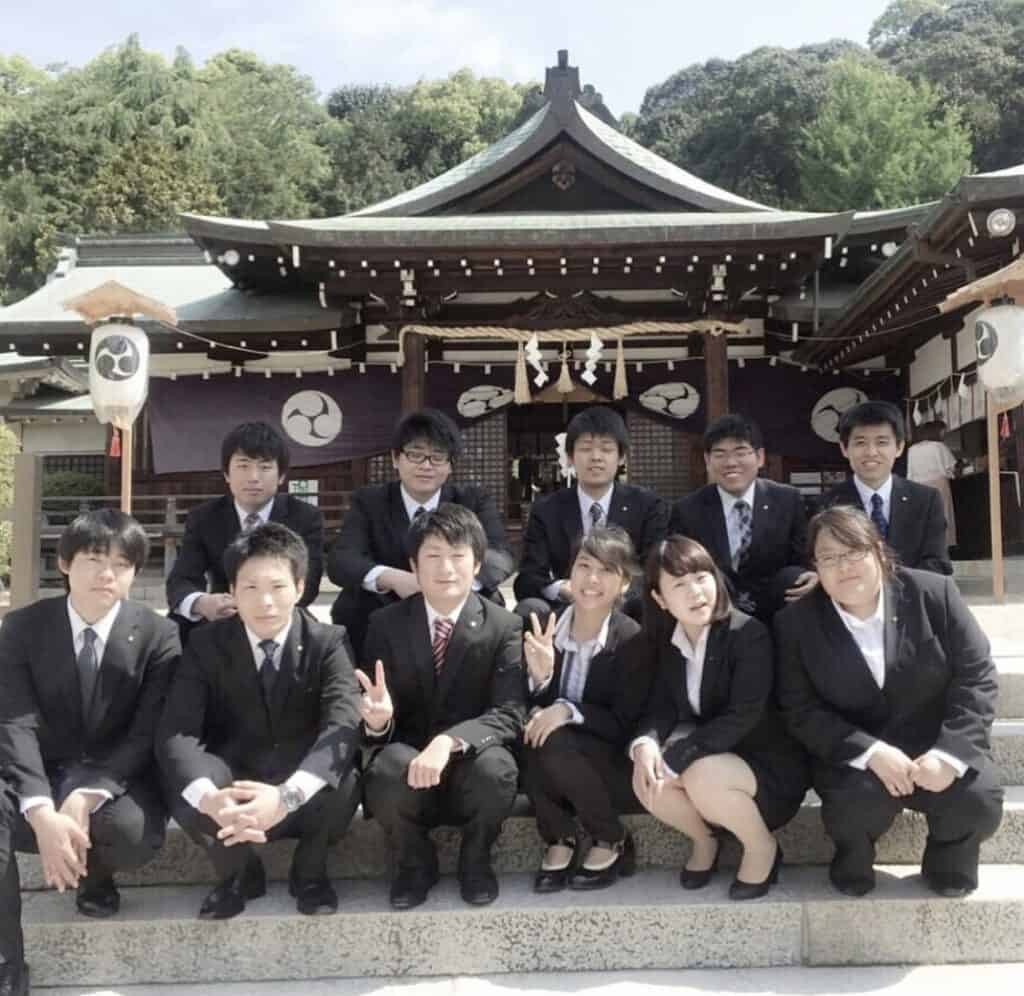
Group harmony is not only emphasized in general Japanese society but also very much in the workplace. Known simply as wa in Japanese, this concept means making sure that everyone around you is happy, instead of focusing on yourself.
The Japanese feel that society’s needs should take preference over individual needs. The result of this is that people learn to compromise in order to find a way to make sure that everyone gets what they need. This creates a peaceful environment where everyone works together in harmony and cooperates with each other.
A part of Japanese culture is to do your best to never inconvenience other people. This why people often do not take holidays or stay home sick in case it is a real emergency. By doing this, they would be disrupting everyone around them and this is the opposite of the harmony that they strive for.
This is probably the biggest reason why people in Japan work so long and hard – because they are afraid of making things difficult for their coworkers and especially their bosses if they do otherwise. A lot of the workers feel guilty for wanting to take time off because this is seen as selfish.
Where Does Japan’s Work Ethic Come From?
Unfortunately, Japan does not have one big secret philosophy that causes all their people to work hard and efficiently.
This kind of hard work comes from generations of learning different philosophies and approaches that all work well together. Once again – harmony.
However, the Japanese are known to incorporate some specific strategies into their work environments to make sure that things run smoothly and that everyone works together.
One of these strategies is known as Kaizen. In English, this means “the act of making bad points better.” In simple terms, Kaizen means improvement and change for the better. If there is a problem, fix it and make sure that it does not happen again. Change whatever caused the problem to occur in the first place and learn from it.
If you think about it, the reason the Japanese are so efficient is not because of them working long hours in fast-paced environments or working painfully hard to keep everything in perfect order at all times. It is because they actually do take the time to step back and evaluate their work and make sure that they are not just working a lot, but that they are working well.
They are constantly looking for ways to be more efficient and work smarter. Another interesting thing about Kaizen is that this evaluation does not take place after the work is completed, but rather while they are working. This way, changes can be made quickly and before it is too late, which saves a lot of time and energy.
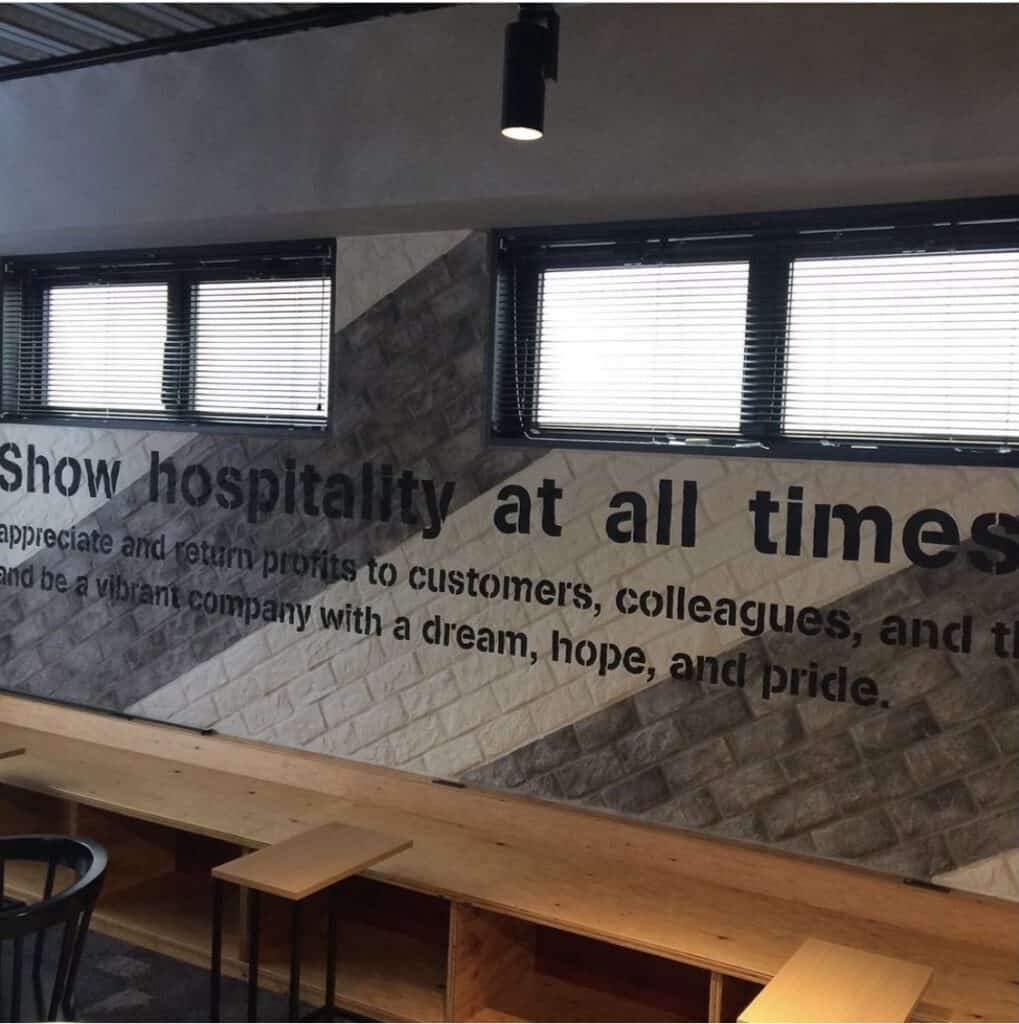
Kaizen consists of three aspects;
- Making mistakes
In contrast to what many believe about Japanese work culture, they do not see mistakes as the end of the world. Rather, the focus is on how they can grow from these mistakes. Because of this, employees do not feel afraid to be creative and innovative, which are two words that describe Japan quite well.
- Finding problems and then fixing them
Feedback is important. Whether it be from clients, bosses, or coworkers, feedback is the way problems are identified and solved. This is highly stressed in the work environment and constructive criticism should be taken seriously and without hard feelings.
But, on the other hand, employees are encouraged to be alert and to think logically so that they can also identify problems themselves, instead of relying on others do it all the time.
- Staying innovative
Employees are then urged to take whatever they have learned and apply it to the next project or the next task. Whether the previous problem had to do with planning, executing the work, dealing with customers, or whatever, this problem can be avoided in the next task by applying their new knowledge.
Another important philosophy is ikigai. To put it simply, ikigai refers to your happiness and satisfaction in life. Basically, to have a purpose.
The Japanese believe that being productive every day and doing small things that bring success is the key to living a long and happy life. Even though karoshi is a thing, people still believe that the key to feeling fulfilled is to be hardworking and make a contribution to society. Plus, Japan has the oldest population in the world, so they must be on to something.
This is a little deeper than just being a good employee. Ikigai focuses on self-development and living a life filled with numerous accomplishments – big and small. Self-development in this sense does not refer to a selfish way of life where everything you do is meant to make you feel good. It has got more to do with how others will perceive you, how much you have helped others out, and how much good you have done.
Honor plays a big role in the lives of the Japanese people. To have lived a life like that means you will be able to die an honorable person.
This concept may not be part of business training, but it is a part of the people of Japan. If every individual has this mindset, it creates a large group of selfless, dedicated employees.
How Does Japan’s Work Ethic Compare To Other Countries?
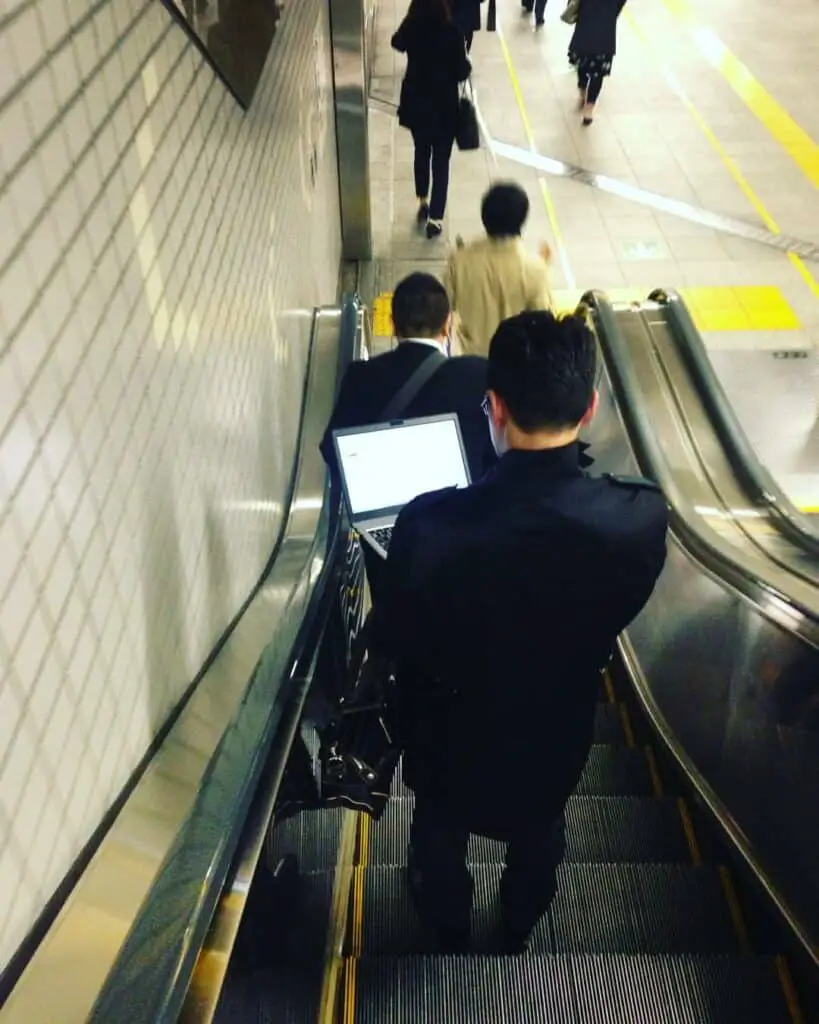
If we look at things for statistical purposes, the workplace in Japan does not seem to be as uniform and grueling as it may sound. According to various studies, the differences between the hours worked and the days of leave taken in Japan and other countries were not that big.
But, the differences between the work culture in Japan and those in other countries are not really statistical ones.
The work ethic in Japan definitely stems from cultural influences. Traditions and rules that have come along for thousands of years have a huge impact on how modern work ethic in Japan.
For example, in the West, people are usually encouraged to express themselves and be outspoken about what they are thinking and feeling. This allows for a lot of creativity and innovation, but it can also cause chaos in a work environment. Because people are generally taught to be individualistic and to put themselves first, personalities will clash and conflict will arise.
Japan, however, does not do this. They avoid conflict as much as they possibly can because of the group harmony concept that I mentioned.
In Western societies, people are a lot more casual and comfortable in the office and with their fellow employees. This is encouraged and some people are even very comfortable with their bosses and treat them like friends, making jokes and inviting them over for dinner. Employees usually dress according to their profession or the atmosphere in their job.
In Japanese society, there is a status and superiority hierarchy that should be followed at all times. Your boss stays your boss. This hierarchy is not only important in the workplace but in society in general. Also, in Japan, most people dress in the same neutral uniform for many different kinds of jobs.
Of course, there are some similarities such as going for drinks after work or having drinking parties. This is quite common throughout most of the world and even though Japan incorporates its own traditions, it is basically the same idea everywhere.
There is definitely a stereotype that Western people are lazier when it comes to working. This is probably not true, but the reason may be that work environments are simply more relaxed than in Japan.
Conclusion
Japan’s work ethic does not stem from a long list of rules and enforcements that employees are made to follow. Yes, obviously there are rules in the workplace. But every country has similar rules that apply to the workplace. So, why is Japan’s work ethic seen as more effective than the rest of the world?
The work culture in Japan comes from the people. They have certain cultural aspects and traditions that have been instilled in them for centuries. Many of their ancestors lived incredibly disciplined lives and this has clearly been passed on through generations.
Japanese people are very polite, full of gratitude, and respectful of others. They are mindful of what the consequences of their actions will be toward others and they strive to be unique, innovative, and to be meticulous. When you combine all these traits and add them to the workplace, you will see hard-working people who get along and work extremely well together.







